Last Friday, at ReFreshers’, the University of Hertfordshire Student Union called me to the Student Council meeting, which was to take place on the 5th of February. I was to blog about what happened in the meeting… and give my views. However simple it may sound, I do realise that the next few days are going to be field days, in that I will have to spend hours uploading things…
Present with me was fellow UHSU Soapbox blogger Kate Snowdon, who was also called to blog about the meeting.
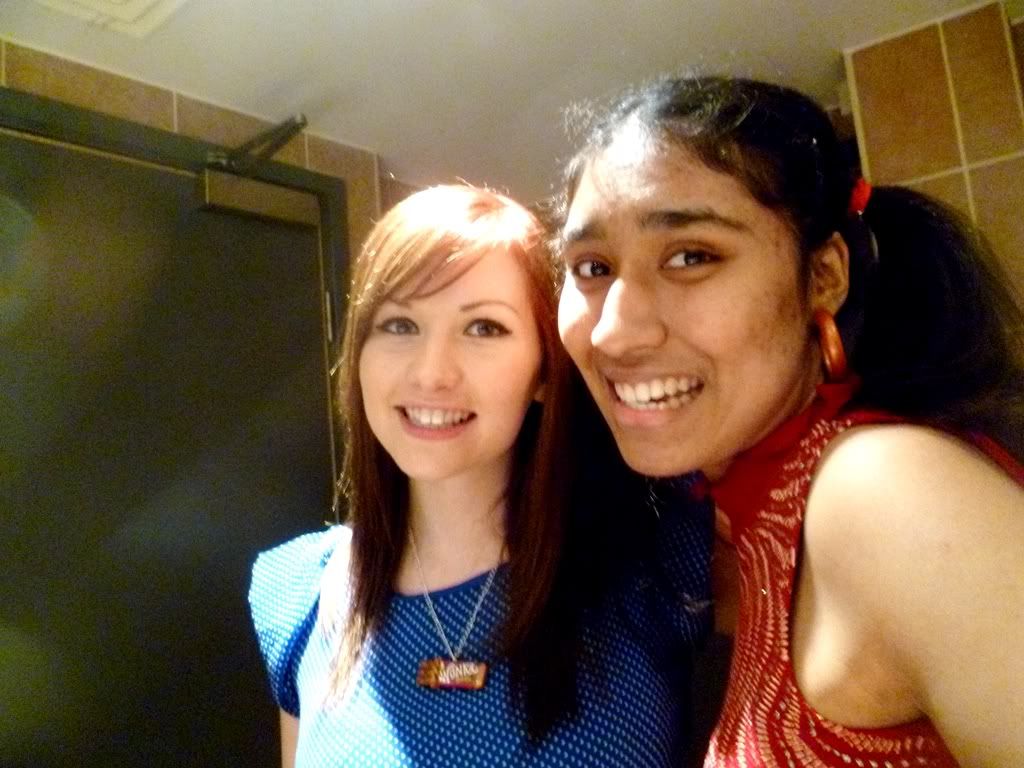
We decided to stop at the EleHouse whilst waiting for the meeting to begin.
Now, note that I came to the first floor of the EleHouse at 4-something — I might've come at 4:30 — made my way to the top of the EleHouse and attempted to get myself registered into UHSU Catholic Society, but couldn't. I also had to address the issue of my Flip camera, whose display just wasn't working. But that's all beside the point. The meeting was to take place in the meeting room beyond the reception, at 6 (here we were told it was going to take place at 5 !!). I was called by the UHSU team to provide coverage on the meeting, so there I was. And instead of blogging live, I had to write a preliminary article because I couldn’t connect to the internet !
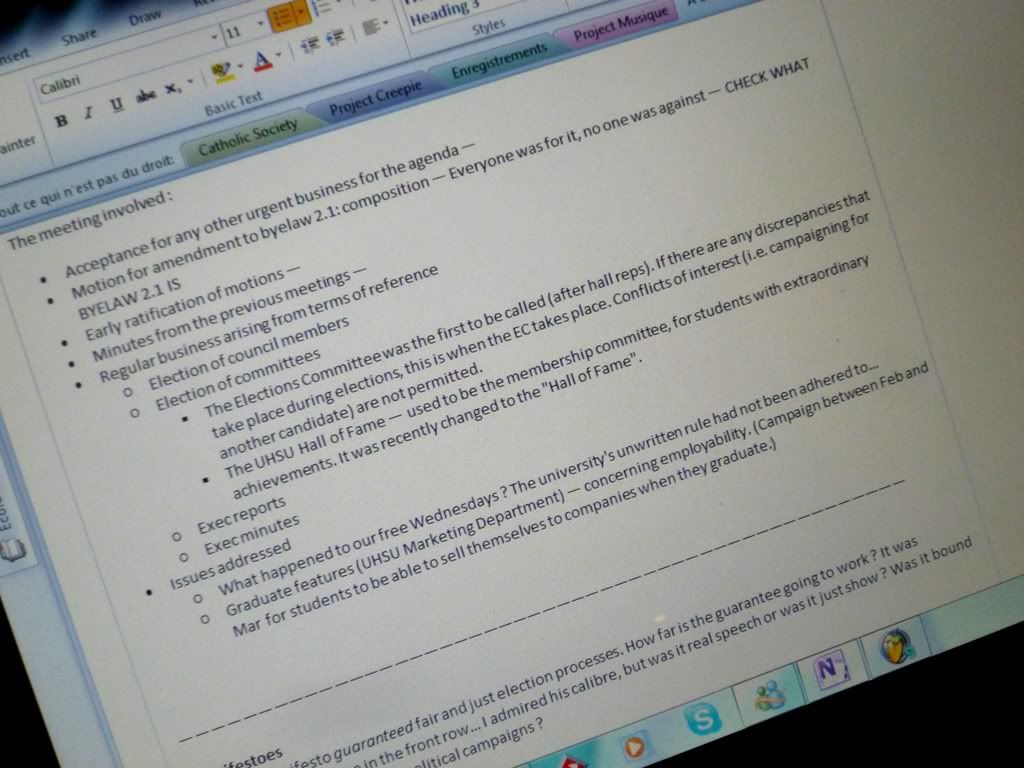
For some reason, the transmitters at the Forum weren’t working very well… So throughout the meeting I had my PC on ; OneNote was open and I stored my notes in it.
The meeting proper started at 6:07, with representatives from the executives at UHSU, heads of departments and ordinary students.
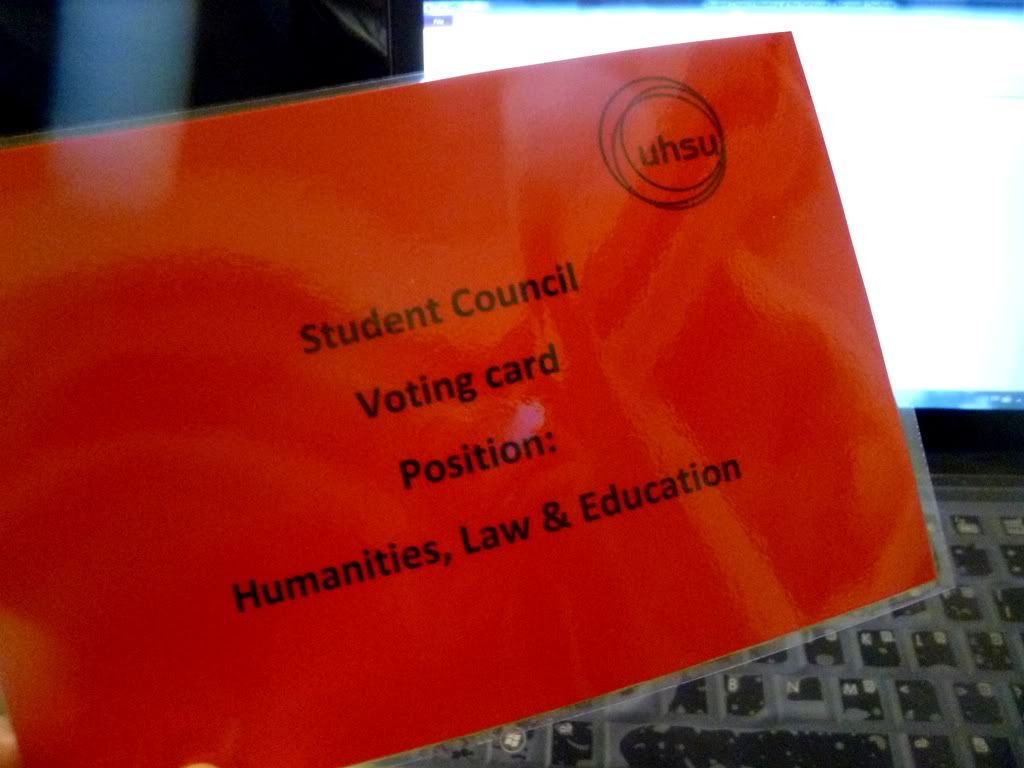
I didn’t think I’d get a voting card, because Kate and I were only here to provide coverage of the meeting. But I did… and I ended up with Humanities, Law and Education… AGAIN !
Here’s something Soapbox bloggers will like :
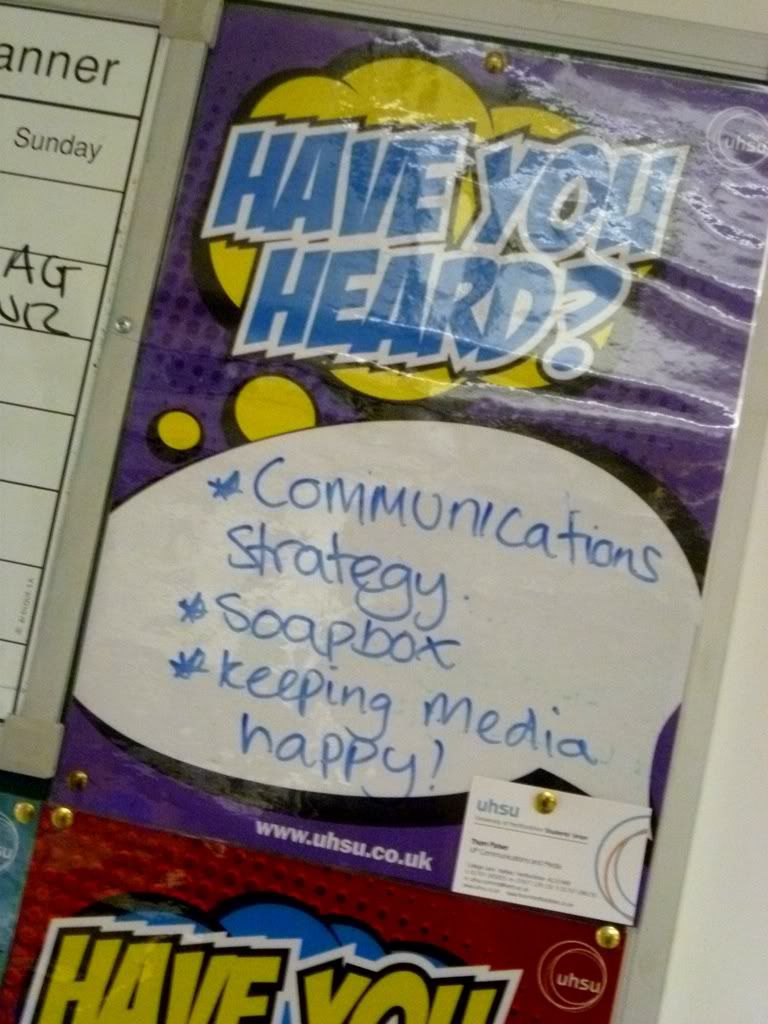
Thom Palser heads this department and we’ve heard it from the lion’s mouth — everyone in the media is satisfied ! ^_^ And as a blogger at UHSU Soapbox, I am too. Well, sort of — you get the point. *applauds*
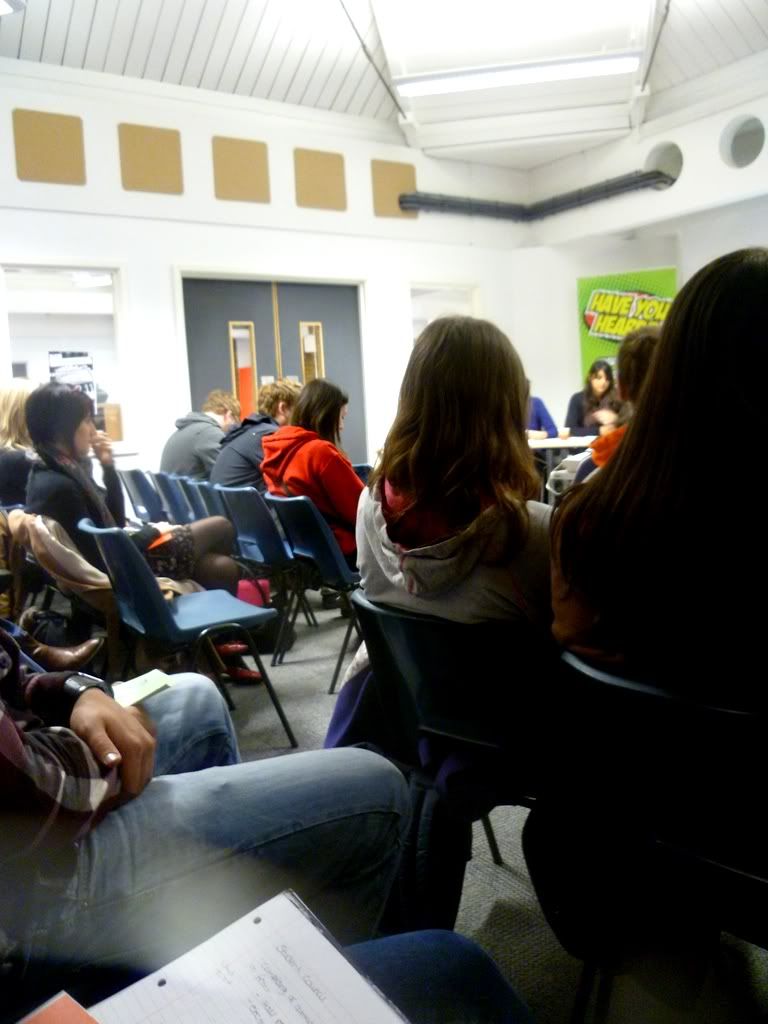
The meeting was described by a few people to be “easy and non-confrontational” — I heard that in most Student Council meetings, attendees would be seated in a circle, and they’d not only be able to see each other ; they’d also be able to yell at each other’s faces. Theoretically. Though I doubt anyone would want to do that… would he ?
How it all worked
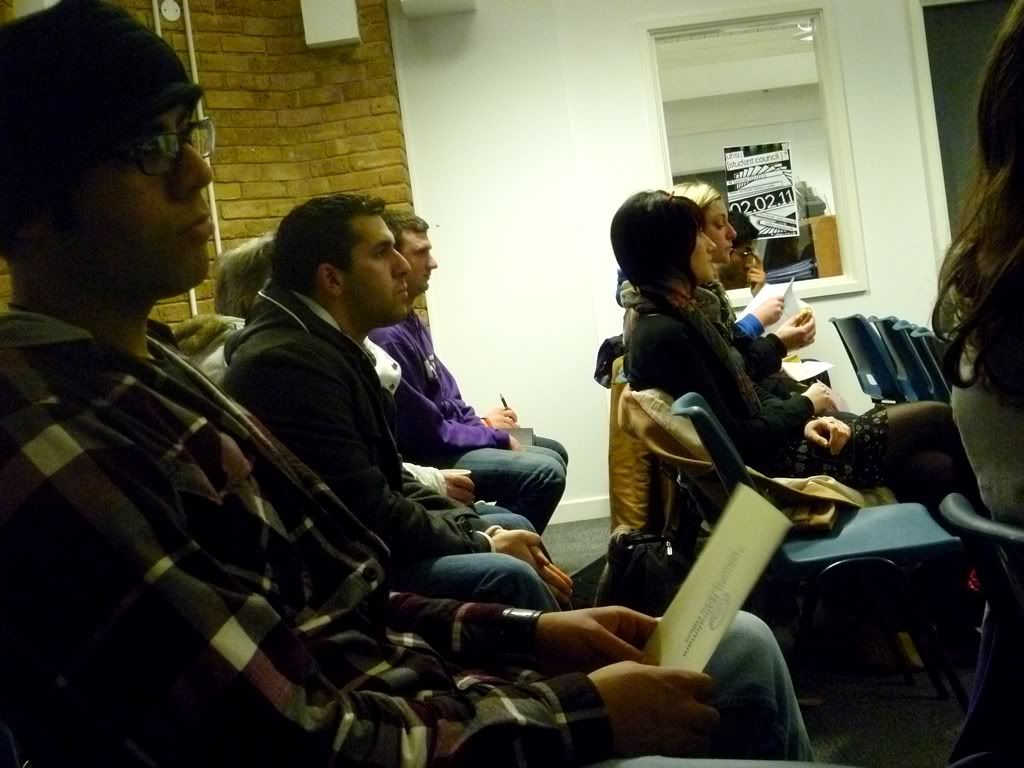
We started by providing the minutes of previous department meetings, reports from the executive board and upcoming plans. After that, we were asked if anyone wanted to stand for certain posts (among others, hall representatives). Finally, we were given certain motions and we were asked to vote on them. Voting is done by raising voting cards (the card reading “Humanities, Law & Education” above is my voting card). We can either agree, disagree or abstain from voting.
The footage of the entire meeting was taken on camera. For my part, I have taken a few still photos and videos of the meeting for archiving purposes.
We are, technically, members of the Student Council — only that we do not realise it. No matter how ordinary we seem to be, how “inactive” we are, the changes that apply in Student Council meetings apply to each and every one of us. This explains the need for participation. The good thing about having meetings like these is that decisions and proposals can be discussed and voted on in a democratic fashion. People can speak up against things which they are not in agreement with. Or, if there’s a bright idea which needs to be pushed through, we can by all means do so in a meeting.

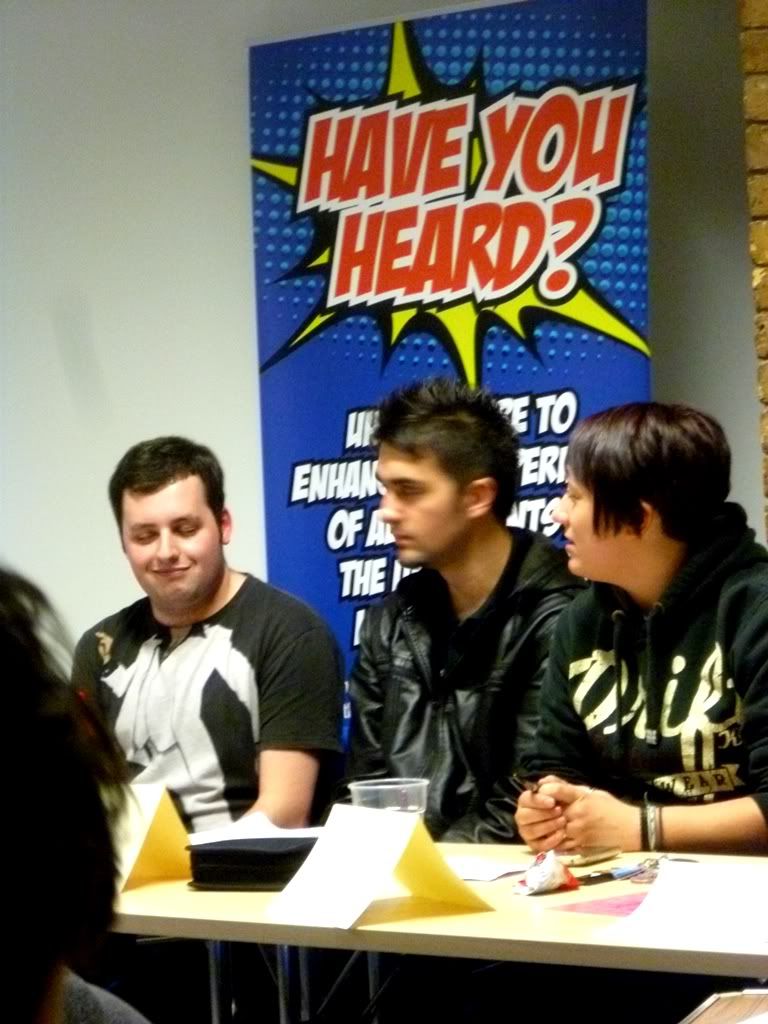
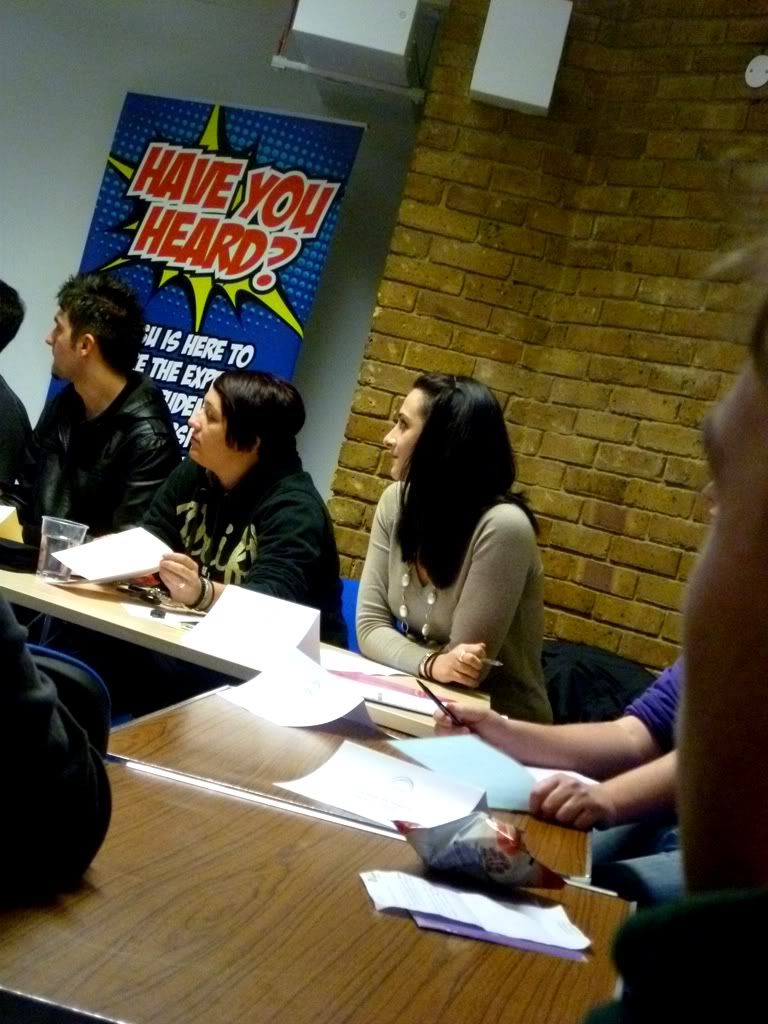
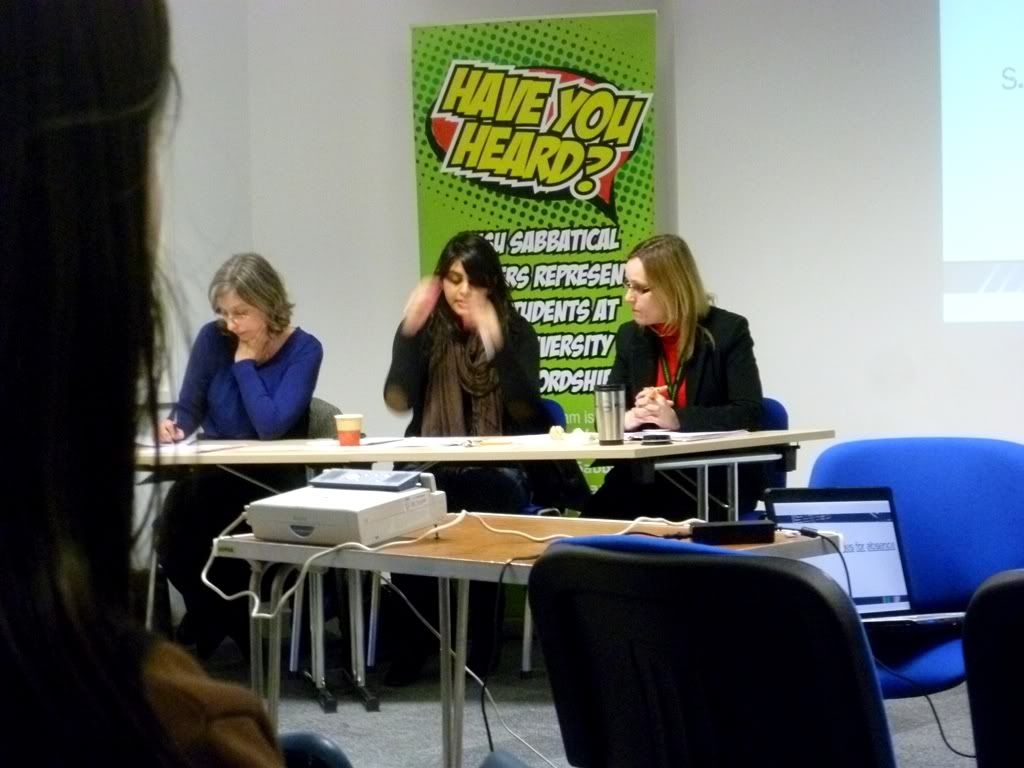
The motions, reports and records brought up in the meeting
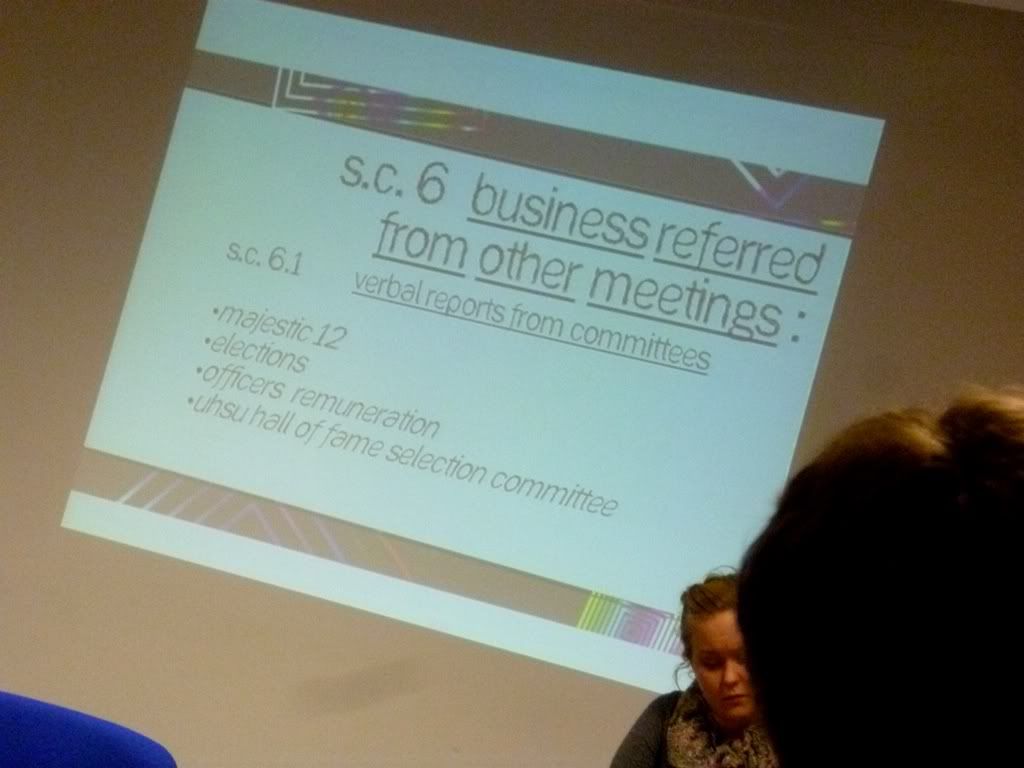
I noted down only some of the things brought up in the meeting — the meeting was quite fast-paced.
Reports were given by the executive members of the Student Council — here’s the report for UHSU Media :
Elections of council members and committees
We were asked if there were any freshers who wanted to run for the position of hall representatives. Being a fresher, I could have easily run for the post… but I didn’t want to. I did not know if I could represent the entire community in Chapman Hall…
Mention was also made of the Elections Committee. If there are any discrepancies that take place during elections, this is when the Elections Committee intervenes. Conflicts of interest (e.g. campaigning for a candidate running for elections) are not permitted — I imagine the person guilty of this may be disciplined with immediate effect.
On the subject of the Election Committee and elections, here’s one of the matters concerning elections :
I even learned of the UHSU Hall of Fame. It used to be known as the Membership Committee, for students with extraordinary achievements. It was recently changed to the "Hall of Fame" — I imagine we did not want to be under the impression that the UHSU is for the elite (that’s what “Membership Committee” may seem to suggest).
One of the members of the floor has also brought up the problems concerning the site for student representatives. At present, applications for student representatives are done through the university’s online portal, StudyNet — which makes it seem like a closed-door system. The council suggests that this be done through a public site…
Discrepancies and other necessary stuff
There is an unwritten rule in the University of Hertfordshire that Wednesdays are meant to be kept free from lectures and whatnot in order for people from different faculties to have leisure time and meet each other for society gatherings. Just as I had noticed over the past four months, this rule has not been adhered to. The Student Union is currently writing a plea for this matter to be looked into.
With the rise in tuition fees, universities are called to tell students what to expect from each university. There needs to be a document which lays down every student’s expectations — this is known as a Student Charter. This is a government initiative, and the Student Charter acts as a sort of promise to the students (or in legal terms, a covenant). The current UHSU team is tending to the charter, and they shall decide how it will be presented and marketed.
Furthermore, at present, the Assistant Learning Centre for students with learning difficulties is currently situated at the back of the DeHavilland campus, making it difficult for students to access it. That, and the law school is moving to DeHavilland this year. We suggest that the Assistant Learning Centre be moved to the front of the campus…
For international students, this is the discussion which took place following a report from one of the executive members who was not present for the meeting :
Things which we needed to vote on
First off, there were several byelaws which needed to be amended, including that which described the role of the Vice Chairperson of the UHSU, the “guillotine period” (or time limit) for matters which arise in the UHSU to be settled… GAH I didn’t get it all.
We also talked about making the RAG (Raise and Give) team an official, part-time body with non-fiscal remuneration given if people can achieve the specific targets. The RAG chairperson cannot handle the function all by himself anymore — the event has grown, and more and more people are coming, and much more is being done in 72 hours (during RAG, the EleHouse is open for 72 hours straight). That was clear enough, I suppose.
There was also the question on whether or not non-students and/or former students can vote in council meetings, and whether or not we could use Student ID cards to vote, instead of voting cards.
———————————————————
Analysis, suggestions and several ramblings from a law student
DISCLAIMER : The author is in no way hitting out towards any individual or group through the writings in this section. The things which irk her are all mentioned below, and the author hopes that a solution can be reached for all student types.
Manifestoes
I am bringing this up because it was among the first things I noticed in the meeting, and manifestoes have become a sort of staple for elections.
Manifestoes play an important role when it comes to the selection of people for a certain post. They function as the mission statement of the candidate. Yet, considering the amount of failed manifestoes we have seen in national (and international) politics in the past, many manifestoes have been nothing but show. The candidate says “I promise to (insert task here) for the benefit of (insert beneficiaries here)”… and we wonder whether it would actually mean something.
I heard a manifesto being spoken out when we were calling for candidates for the Election Committee… it was loud and spontaneous, but whether or not it was said in earnesty is another question altogether. This person guaranteed (yes, guaranteed) a fair and just election process. *sigh* I am of the view that assertion can be good for a mission statement, a promise to the students, but it isn’t always necessary. Loud voices, pomp and circumstance don’t always guarantee results. Also, we can be competent, but not 100% sure that we are going to effectuate the task according to the ideals of the UHSU — we can’t tell when a slip-up is going to happen out of our control.
Public demeanour
Call me a prude if you so wish, but when I talk about morality, I’m not talking about my morality or your morality. These DO NOT exist. There is a general morality and a general approach in dealing with others. Throw utilitarianism out the window immediately. I am more than willing to go by a natural and legal standpoint. If I were to go by your morals and my morals, there would be no need for law (or even a general set of principles) at all ! Which is a paradox, because we naturally need it !
The same applies when it comes to maintaining decorum and public demeanour.
We are in a Student Council meeting. I imagine tempers will flare, opinions will clash, and there needs to be a bit of lightening up — otherwise we will all lose our sanity within two hours. One of the Sabbs told someone in jest that he didn’t want to see the person’s face again. From the tone of his voice it was obviously done in jest. The person to whom it was directed took it very well. But there was another person who got upset and yelled out… “EXCUSE ME, are you telling me that you’re sick of seeing my face ?”
At that point in time almost everyone in the room turned at him. I, for my part, gave him a cold hard stare and said “Lighten up already !”
I was later told by one of the members of the floor that he had a syndrome of some kind, but that’s not the problem.
Strictly speaking, anyone of us can lose his cool and flare up in the meeting. I could have. The person behind me could have. The whole point of having a meeting is to discuss issues and motions in a civil manner, no matter how imperfect our means of discussion is. I am more than willing to sympathise with people, don’t get me wrong — but I don't like it (and I doubt many people would like it, particularly in a meeting) when the ground rules of morality are breached, and I don't want to do things at the expense of my own conscience. Barging in just like that not only spooks everyone out, it’s just plain rude. And if we were to keep up with this habit in the professional arena, STRIKE ONE ! YOU’RE OUT !
This is where my point of view comes in : if I’m gonna love someone, I’m not just gonna take 100% of what he is and live with it. If some things need to be corrected, they need to be corrected, regardless of the circumstances. There needs to be fortitude. The same applies to a professional setting (the Student Council meeting is a reflection of it). You wouldn’t want to live with the fact that your office worker is lazy or (pardon my lack of words) severely incompetent, would you ? For the love of the person and the company, you’d either get him to buck up or teach him a lesson… a hard and painful one… by firing him.
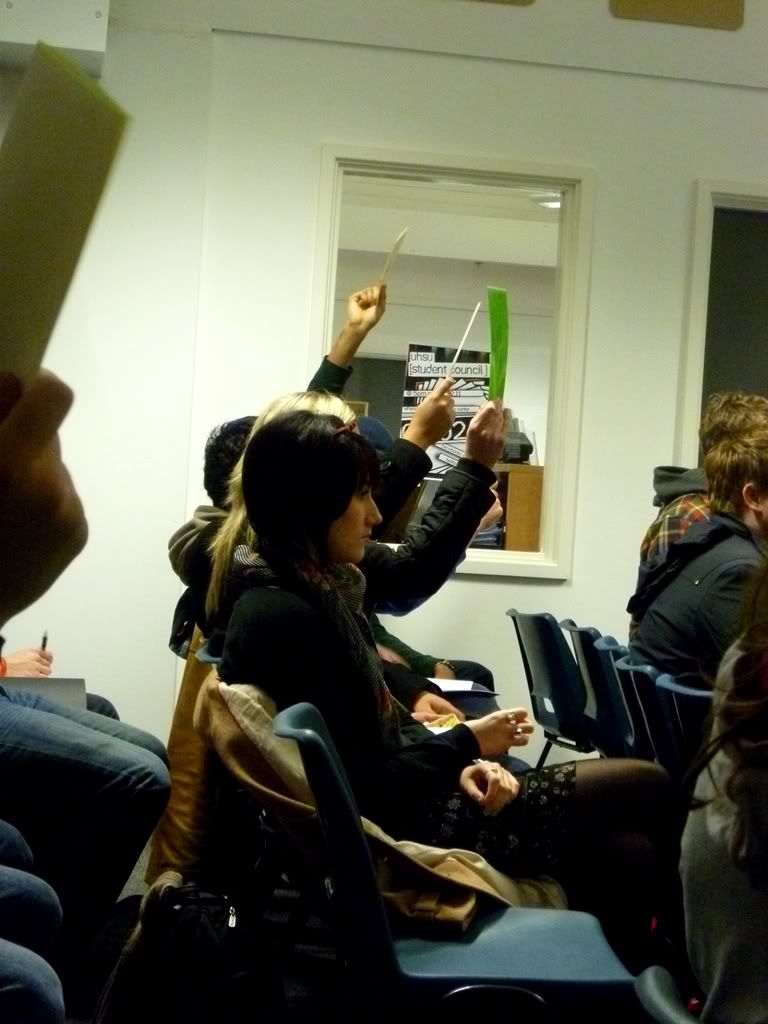
Legal standpoint
I would also call for the motions to be given to the students in a sort of periodical (think e-mail alert) so that everyone would be aware. Kate and I were seated at the back of the meeting room. For the few of us who sat in a Student Council meeting for the first time, we had almost no idea of what we were voting. I often had to ask people in the front row, and if they couldn’t answer me on time, I would neither agree nor disagree — I would abstain from voting. If we have a confirmed list of e-mail addresses from attendees, the motions could be brought to our attention earlier, and this would encourage full participation.
This especially applies to cases where byelaws need to be amended. I am very particular about this, as I am a law student. To understand the changes that are taking place, I need a thorough investigation of the current byelaw, as well as the new amendment. Never mind if it turns out to be as long as a Parliamentary debate. Asking for an amendment of a byelaw without giving it to us to read may be justified by the fact that we are running out of time, and we do not want a council meeting to last for more than two hours. Yet, to people like me who want to see what is being amended, it is downright preposterous. There was quite a bit of confusion over the byelaws yesterday, and I had to abstain from voting on at least one of the amendments because I did not get what it was that was being amended. What if, after reading the old byelaw, it turns out that we do not want the change after all ?
Conclusion
All in all, the Student Council meeting was a meeting done with the best of intentions for every student… but could’ve been made better. The meeting in general was very well organised, and apart from the few hiccups which I talked about, it went smoothly. However, there needed to be more awareness about the motions brought up in the meeting — and letting us know about it a short time beforehand might be a way to get around it.





0 comments:
Post a Comment